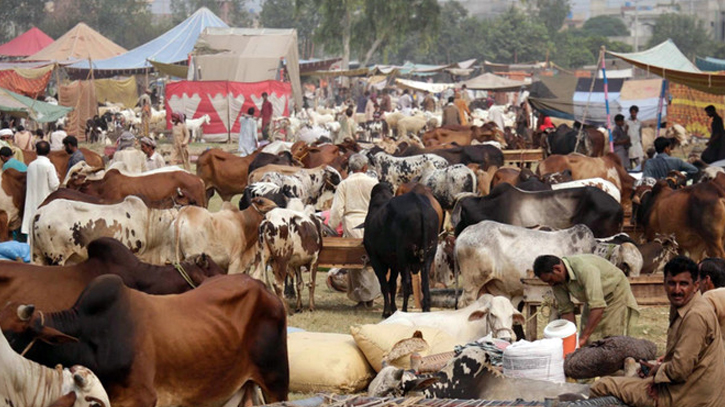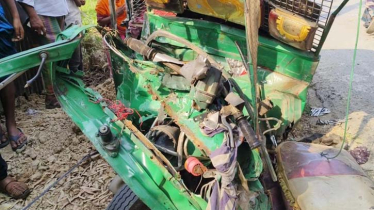
Photo : Collected
As a result of house-to-house cattle and goat farming practices everywhere, the district has become home of surplus sacrificial animals counting to around 1.65 lakh in the district compared to its demand.
Local animal husbandry sector has marked a revolutionary boost in recent years following massive steps taken by the government and different development organisations.
Both rural and urban areas, the poor and marginalised people including women have achieved tremendous successes in the sector getting various assistance from the government and development partners.
Artificial insemination of cows is gaining popularity in the region following significant achievement in improving the breeding system. Tareque Islam, 45, a farmer of Paba upazila, has been fattening eight buffaloes for around seven months aimed at selling those in the upcoming sacrificial animal markets.
Due to the cross breeding, the cows are giving milk 10 times more than the previous record, said Arafat Hossain, a successful dairy farmer in the city.
He said the producers have adopted new and improved practices and technologies in bull rearing and fattening contributing to enhanced production and productivity.
The size of the market has expanded due to the growing active role of large and small-scale private companies.
Line Agencies have become proactive towards supporting market actors especially Local Service Providers by dint of their complementary roles in extension services.
In practice, the LSPs provide training, advice and input to the producers and earn on an average Taka 4,500 per month. Routinely, they extend different modern technology to the producers through setting demonstration plots in the locality.
Besides, they organise community meetings with the help of private companies for building awareness about quality inputs.
Service contracts were established to provide regular necessary services and inputs to the farmers.
Messenger/Mumu








